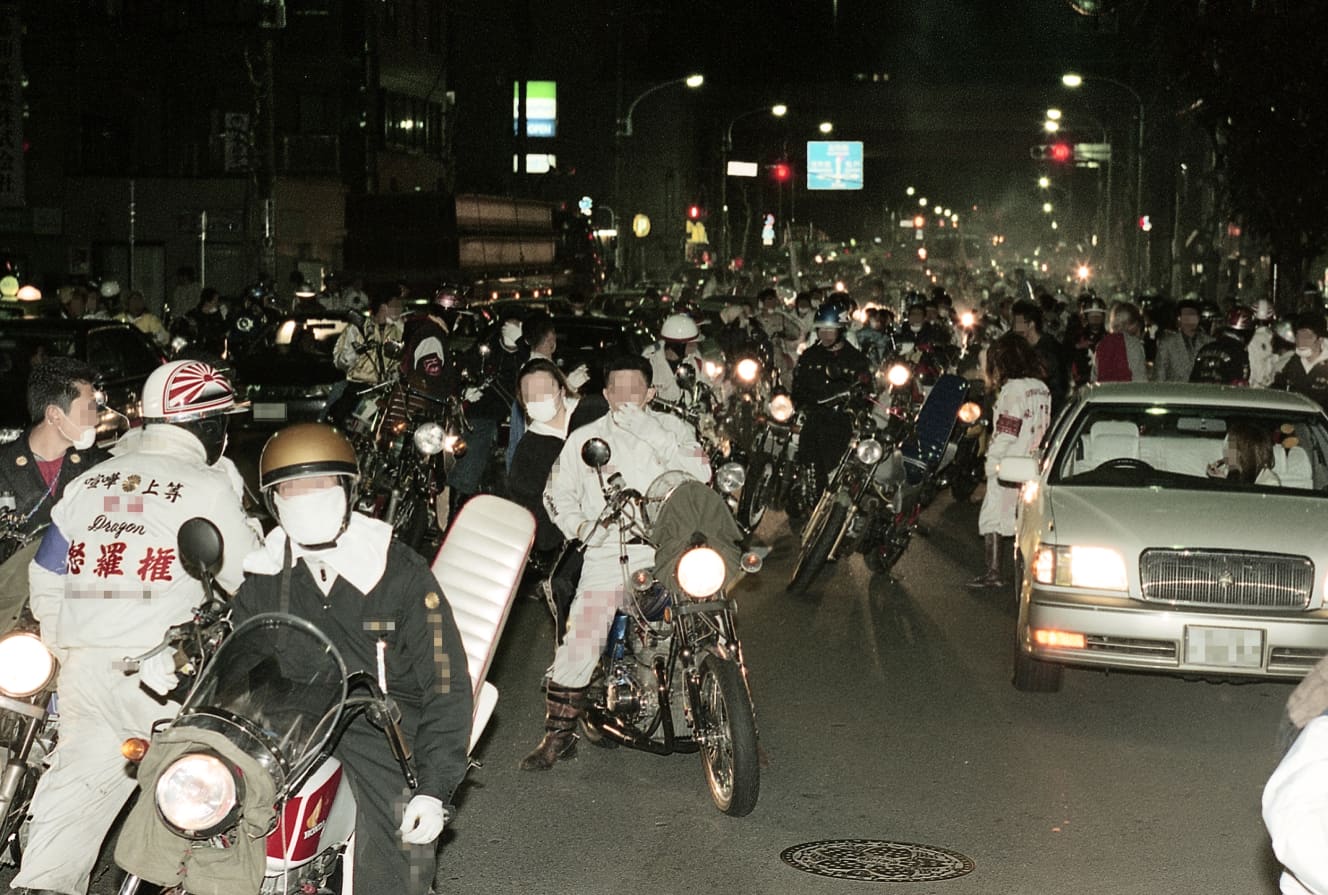Why Police Officials Are More Wary of “Chinese Dragons” than Gangsters
A brawl involving about 100 members of the delinquent group “Chinese Dragon” that occurred on the evening of October 16 at a French restaurant on the 58th floor of the “Sunshine 60” high-rise complex in Ikebukuro, Tokyo, has raised the issue that the group is outside the legal regulations. The police authorities have positioned Chinese Dragon as a “quasi-gang,” a dangerous group equivalent to a gang, and are trying to keep track of its movements. Quasi-gangs are sometimes referred to as “semi-gangs,” depending on the media. They are currently not regulated by the Anti-Boryokudan Law, and some have pointed out that they are “more troublesome than the yakuza” (a senior law enforcement official).
The semi-gres are free to do whatever they want.
A senior member of a designated crime syndicate active in the Tokyo metropolitan area spoke about the Chinese Dragon brawl. The “all-you-can-do” refers not only to the brawl in a public place such as a restaurant, but also to the banquet held to celebrate the leader’s release from prison, he said.
Looking back on the incident, on the evening of the 16th, about 100 members of Chinese Dragon gathered at a French restaurant in Sunshine 60 to celebrate the release from prison of their leader, who had been serving time in prison. Early in the party, a brawl broke out and the police rushed to the scene.
An old executive said.
The yakuza are now not allowed to hold banquets at restaurants because they are considered an antisocial force. They cannot stay at hotels, play golf, buy cars, or rent houses. They cannot buy a car or sign a rental housing contract. Their bank accounts are closed. Everything is not allowed since we have been ‘certified’ as anti-social forces.
He revealed that he is not allowed to do anything after being “certified as anti-company.
The reason for this was that in June 2007, the government’s Cabinet Council on Crime Control established “Guidelines for the Prevention of Damage Caused by Antisocial Forces to Businesses. A “gang exclusion clause” was introduced for customers in restaurants, hotels, and other establishments. In a prepared document, the question “Do you belong to any anti-social forces such as organized crime groups?” is answered with “No, I do not. and “Do you belong to any anti-social forces such as crime syndicates?
At first, few stores and other establishments adopted the riot clauses. However, as awareness of anti-corporate activities has gradually increased, many restaurants, hotels, golf courses, and other establishments have now adopted the clauses.
Recently, in August of this year, the chairman of the designated crime syndicate Dojinkai was arrested by the Fukuoka Prefectural Police on suspicion of fraud for staying at a hotel while concealing his identity. The chairman was arrested again in September for staying at another hotel. A senior police investigator who has long been in charge of combating organized crime said, “Because of the riot clause, yakuza are not allowed to hold banquets in the first place. The yakuza are well aware of this point and do not hold banquets that stand out in the first place,” he said.

Furthermore, since the Boryokudan Law contains provisions such as “prohibition of exaltation of awards, etc.,” the aforementioned old executive added his explanation, “Celebrations of release from prison are also forbidden if the person is recognized as a yakuza.
This provision was included in the Violence Prevention Law revised in August 2008. In December 2010, Tadashi Irie, a leader of the Takumi clan while a member of the Yamaguchi Gumi VI, was arrested on suspicion of violating the Violence Prevention Law.
Although gangs are subject to various regulations once they are designated under the Anti-Gang Law, quasi-gangs and semi-gangs are currently not covered by the Anti-Gang Law. If they cause incidents such as murder or fraud, they are subject to investigation as criminal offenses, but the reality is that there are virtually no laws and regulations such as the Violence Against Boryokudan Law for dangerous groups.
A senior executive of one of the designated gangs mentioned above added, “When you become a yakuza, you have to go through a lot of trouble, such as apprenticeships and other unique rituals. Young people who do not want to become yakuza but want to live like yakuza become semi-gres.
To the same effect, a senior police official also pointed out, “If you become a yakuza, you will have a lot of trouble with your parents.
When you become a yakuza, you receive a sake cup from your boss and are officially welcomed as a member of the younger generation. Since they are bound together by the sake cup, they seem to think that it is ‘shameful’ to leave or enter the organization, and this kind of movement is rare. It seems to be a moral thing in their own way.
He then went on to describe the semi-gres.
Unlike the yakuza, members of the semi-gres are free to come and go as they please. Even if you can identify a member of one group, after a while he or she is often working with another group. They are elusive. Gangs are organized, but the semi-gres are more troublesome than gangs.
(Titles omitted in the text.)
Interview and text by: Masahiro Ojima
Nonfiction writer. After working for the Sankei Shimbun in charge of the National Police Agency Press Club, the Metropolitan Police Department Cap, the Kanagawa Prefectural Police Cap, the Judicial Press Club, and the National Tax Agency Press Club, he went freelance. His most recent book is "The True Story of the Yamaguchigumi Split" (Bungeishunju).
Photography: Shinji Hasuo
